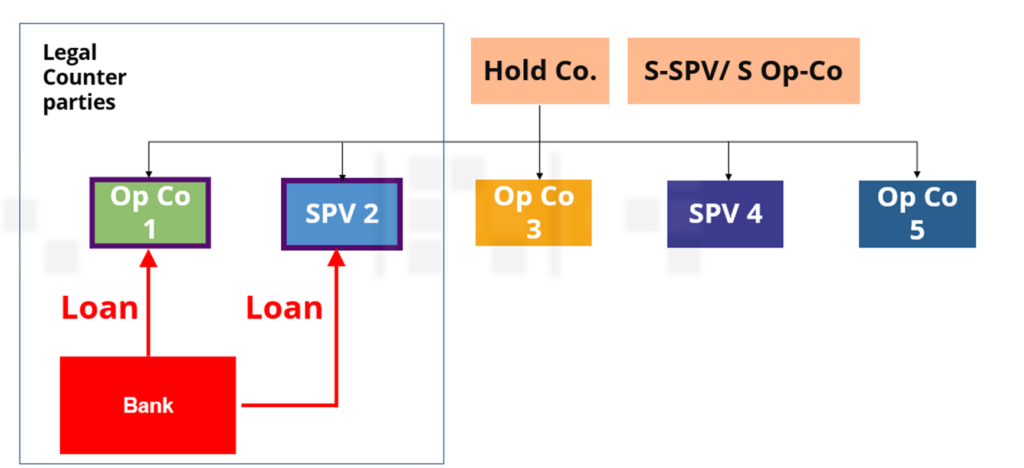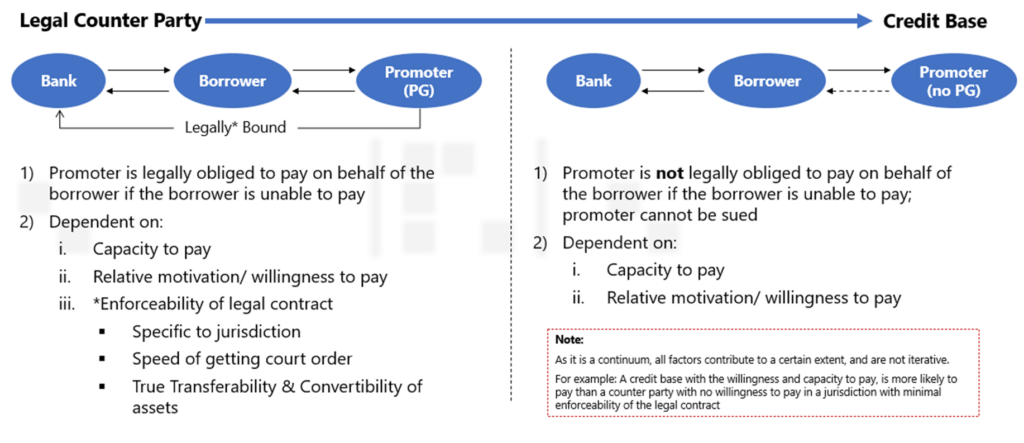
Credit Bases v Counterparty
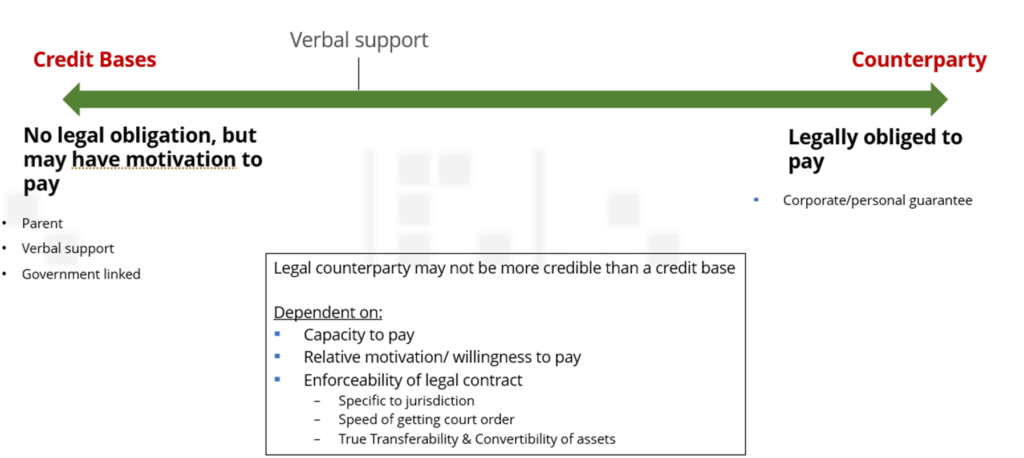
Contracts – Points to note
Coverage
- What commitment(s) does the contract cover?
- Sufficient to determine losses and hence damages/compensation if breached?
- E.g. Is there unit price and volume stated? Otherwise, it is merely a MOU
Length
- How long is the contract for?
Renewal
- Has there been regular renewals?
Relationship
- Long standing relationship or new relationship?
Exit Clauses
- Notice period (time)
- Fines or Cancellation Fee (quantum)
- Sufficient to pay indiscretionary expenses and tide over the period until borrower finds a substitute?
Which is better?
De-facto – in reality, as a matter of fact
- Long-standing relationship
- By law no
- By fact yes
De-Jure – by right, according to law
- Legal “iron-clad” contract
- By law yes
- By fact no
On whom do we focus our analysis?
Legal Counterparties
- Primary obligor(s) and any secondary obligor(s), i.e. any party against whom the bank / investor has direct or indirect legal recourse wither on first demand or conditionally.
Credit Bases
- Any other party with whom the bank/ investor does not have a direct legal relationship but whose financial health has a direct or indirect impact on the ability of the primary & secondary obligor to complete it debt service obligation throughout the life of the credit exposure
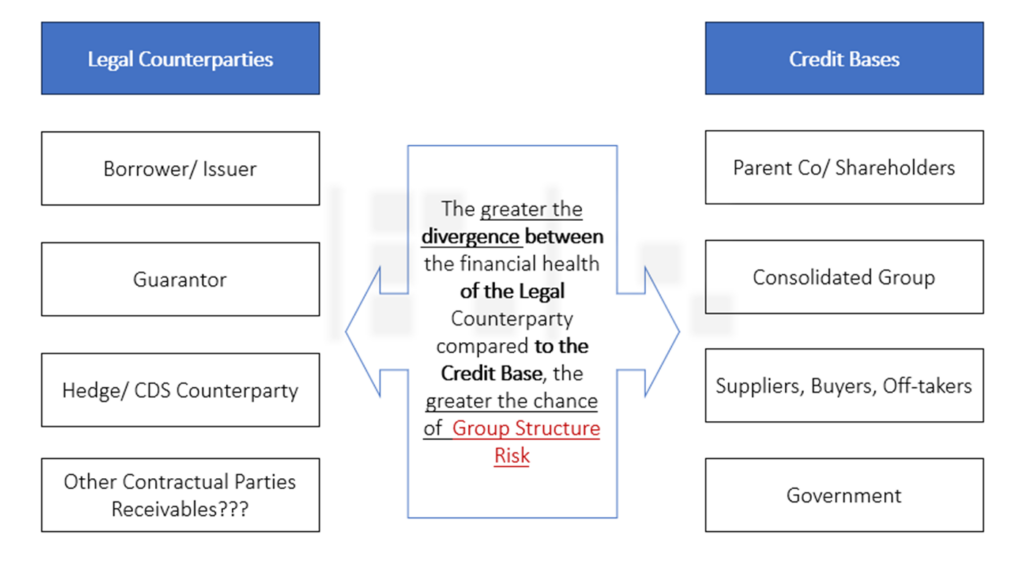
Legal Counterparties and Credit Bases
- Establish strength of group first (consolidated figures)
- Assess whether our exposure is to a strong or weak part of the group (unconsolidated figures)
- Comparison of comparative financial strength of Legal Counterparty and Credit Base gives your initial indicator of the level of Group Structure Risk:
- Weak Legal Counterparty and strong credit base
- Strong Legal Counterparty and weak credit base
- Is consolidation policy distorting the picture?
Bank lending to 1 borrower

Bank lending to 1 borrower with –
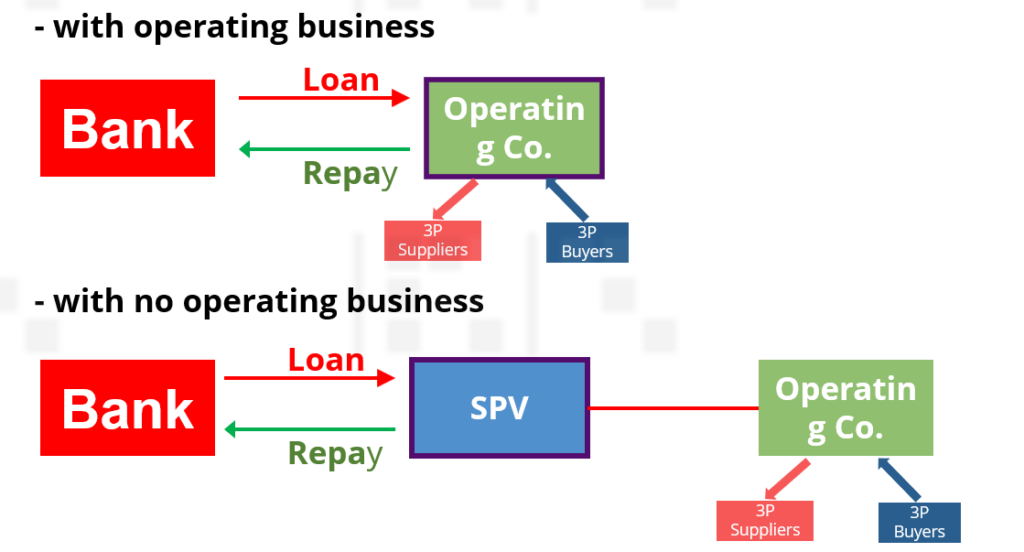
Bank lending to multiple borrowers within a Group
